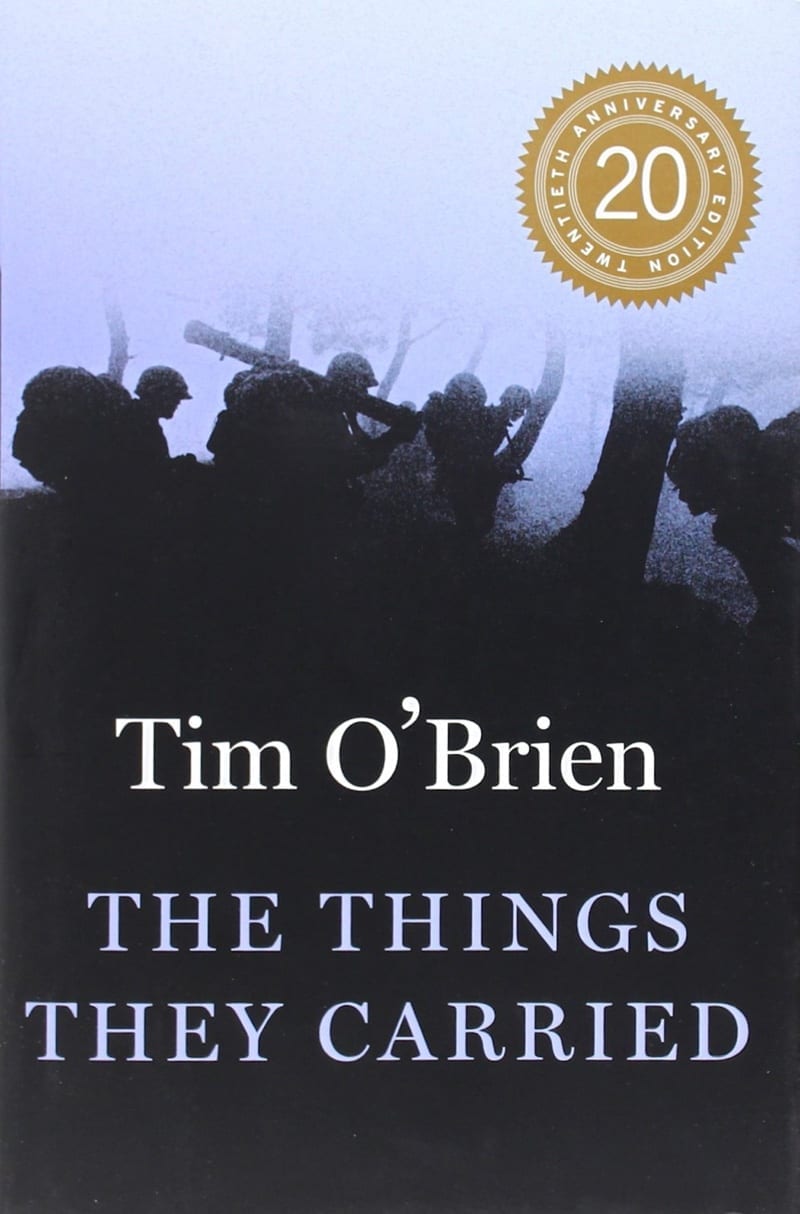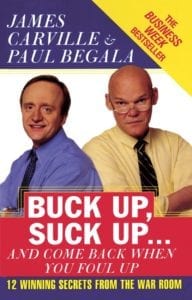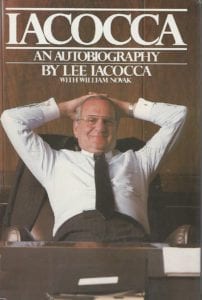The Things They Carried
My Thoughts
This was one of the most unique books I’ve ever read. The author, Tim O’Brien looks at war (in particular, the Vietnam war) through a variety of lenses. The first part covers “The Things They Carried.” He talks about what each member of his unit carried. You look at war through individual soldiers and what they carried with them, knowing that each ounce of additional weight made it harder to move around. I think about what I carry around all the time. When traveling, I want it to be as light as possible. What about during a war? What would I carry? What would I carry to keep me alive, to remind me of home, while remaining nimble?
They carried all they could bear, and then some, including a silent awe for the terrible power of the things they carried.
I mentioned that this was the author’s military unit. Or was it? That’s the very unique thing about this book. The author Tim O’Brien inserts himself into the book and begins talking in the first person. However, the back of the book says “Fiction.” I have never encountered this writing style, called verisimilitude or metafiction. I became confused reading the book as to whether it was a work of fiction or non-fiction. It seemed like the author kept referring back to his own life and even used his own name. But that was the point. The point was to blur the line between fiction and non-fiction. One chapter is dedicated to describing the difference between happening-truth and story-truth. In the fog of war, story-truth can get closer to the actual truth.
It had an impact similar to two other war books I’ve read in the past – All Quiet on the Western Front and Catch-22. Both of those books are disorienting. They mess with your mind. I’ve never been to war, but I would assume that war is the ultimate in messing with your mind. So many extremes and torturous decisions. Tim O’Brien did a brilliant job of creating a “fog of war” through his writing. As a reader, it devastates you yet keeps you wanting more. You read about monks cleaning guns, soldiers dreaming of becoming monks, a girlfriend flying over from the states to be with her man and then becoming a fighting monster, fighting for life amidst constant death.
One theme that stuck out to me throughout the book was the theme of character. Although I don’t think that term was ever used, it had a life throughout the book. Tim O’Brien looks over his own life (in a fictional manner) and sees how decisions in his early life led to the quick and torturous decisions made during the war. Here was one especially poignant passage:
If the stakes ever became high enough – if the evil were evil enough, if the good were good enough – I would simply tap a secret reservoir of courage that had been accumulating inside me over the years. Courage, I seemed to think, comes to us in finite quantities, like an inheritance, and by being frugal and stashing it away and letting it earn interest, we steadily increase our moral capital in preparation for that day when the account must be drawn down. It was a comforting theory. It dispensed with all those bothersome little acts of daily courage; it offered hope and grace to the repetitive coward; it justified the past while amortizing the future.
Later on, O’Brien provides examples in his life where he could have done some of the “bothersome little acts of daily courage.” When he was nine, the girl he loved was being picked on. Instead of confronting the bully, he watched from the sidelines. Later, during the war, he watched his friend Kiowa sink into the mud. He said he didn’t have enough courage to pull him out.
He couldn’t just expect courage to be there during the war when he hadn’t exercised courage earlier on. It’s something that is built alone, when no-one else is watching. It’s character. Heroes don’t get made in a day. Heroes have made the “bothersome little acts” every day of their lives. That’s when it’s hard. That’s when there’s no glory. I thought the author just absolutely nailed this point in the passage above and throughout the book.
I also really enjoyed the sections of the book that took place in pre and post-war Minnesota and the surrounding area. I grew up in Minnesota, so there was some nostalgia. There was a section where he contemplated crossing the border into Canada to avoid the war. O’Brien goes fishing with an old man in Minnesota. That section reminded me of fishing with my grandfather when I was a child. Small details like going to Dairy Queen, how O’Brien’s father acted in the aftermath of a death, and how the old man behaved were spot-on Minnesota.
To an extent, I suppose, his reticence was typical of that part of Minnesota, where privacy still held value…



